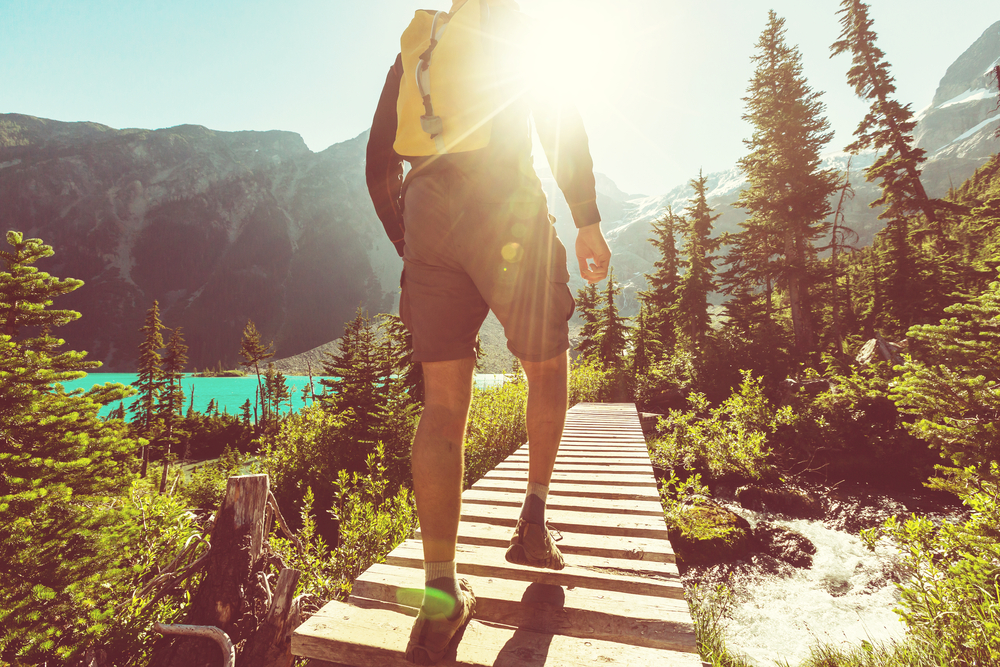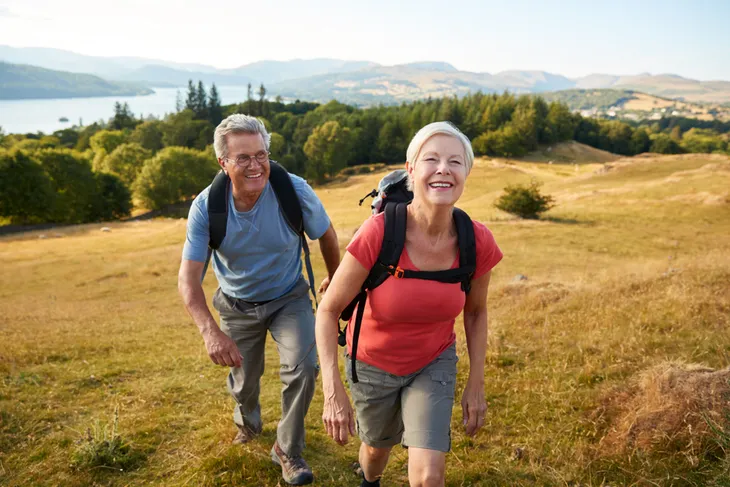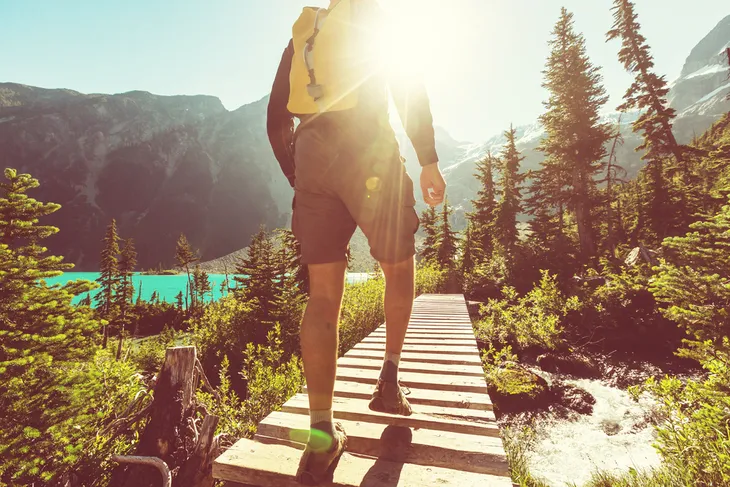We’ve probably all been told to take a hike at some point or another—it may have been a joking remark from a friend, or serious advice from your doctor. Either way, you should take the request literally, as hiking is proven to have many health benefits, according to a 2014 Huffington Post article.
Aside from the obvious benefit of getting some exercise and fresh air, the article mentions positive reasons to hike ranging from increased cognitive ability to helping you heal quicker naturally. Let’s explore five reasons to take steps toward planning a hike whether it’s summer, winter, fall or spring…
1. Reduce Depression
A study posted on The National Center for Biotechnology Information website notes that hiking not only reduces depression and boosts overall mental health, it can even be used in extreme cases including patients at risk of suicide.
The publication notes that depressed patients are more likely to stay indoors or lead inactive lifestyles, and that hiking helps these individuals overcome this while also increasing their physical fitness with as little as 2 hikes per week. The study notes that the patients may include more physical activity in all areas of their life when they are accustomed to outdoor exercise.
2. Increase Quality of Sleep
With alarm clocks, texting sound effects and other distractions from outdoor noise and light, you may be in bed for 7-hours but only feel like you’re getting 3-hours’ worth of real sleep. You may not even realize you’ve woken up several times during the night, and then wonder why you feel exhausted in the morning.
The National Sleep Foundation notes that 150-minutes of exercise per week (yes, hiking is a form of exercise) will help you feel more rested and alert during the day. It notes that up to 40-percent of Americans wrestle with feeling sleepy during the day or insomnia, but the risk drops significantly (65-percent) for those who get the required amount of exercise. As a side note, the foundation also says there’s less chance of getting leg cramps during sleep which will obviously reduce your quality of rest.
3. Reconnect with Nature
There are so many artificial sources of stimulation in our daily lives like smart phones and television, that we sometimes forget to “tune out” and appreciate our natural surroundings. The Winnipeg Regional Health Authority notes that while it’s true physical activity has many benefits, experts are saying exercising outdoors has even greater benefits.
Being outdoors in nature is a way to naturally reduce stress, while increasing alertness and attention span. The authority makes a point that the exercise shouldn’t drop off just because the thermometer drops. If the snow is too deep for a walk where you live during winter, consider cross-country skiing or snowshoeing for similar benefits to hiking. If you don’t have hiking or skiing trails, regular walks around the block will do.
4. Strengthen Your Bones
It doesn’t take hours lifting heavy weights at the gym to build stronger muscles and bones. When you’re hiking, you’re carrying your own weight for hours, which is enough to form new bone tissue, according to the Eunice Kennedy Shriver National Institute of Child Health and Human Development (NICHD), in Maryland.
Hiking is a “weight bearing” exercise, unlike swimming and bicycling, which help your muscles and heart, but don’t have the same benefits for your bones as being on your feet, according to the NICHD. The institute notes that hiking is particularly beneficial for children and teenagers, when they make the biggest gains in bone development.
5. Natural Healing
Back to that original Huffington Post article mentioned in the first slide—it details research that has suggested hiking is a way for cancer patients to recover more quickly, measured by “oxidative stress” believed to play a role in the onset and severity of cancer. The research found that long hikes have antioxidant properties to fight off disease.
The Mayo Clinic backs this “healing” claim by explaining that walking 30-minutes a day can provide a variety of positive effects such as keeping viruses at bay, as well as managing chronic conditions and lengthening your life. However, the clinic suggests starting slowly (walking for 10-minutes a day) before deciding to trek across a rainforest.








